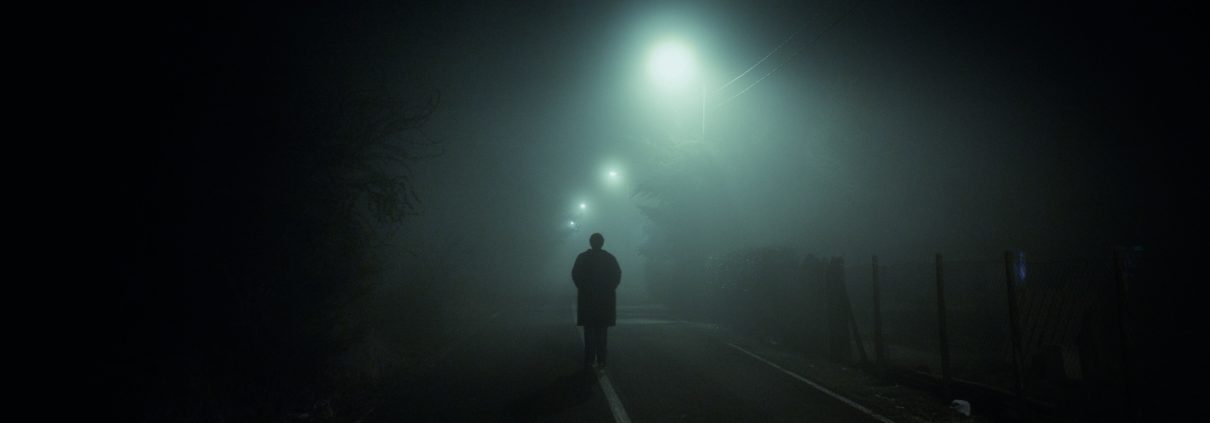Bible Verses about Sadness to Give You Hope
Sometimes it’s hard for believers to allow themselves to feel sad. After all, we say to ourselves, isn’t the joy of the Lord our strength, and shouldn’t we rejoice in all things? This places an enormous amount of pressure on us to grin and bear whatever we may be going through because “it’s what we ought to do.”
 Allowing ourselves to feel sad may feel like we’re betraying our faith or are being “bad Christians.” Moreover, we may feel like we’re letting the people around us down. Many of us simply struggle to sit with despair, and we do not have the language to articulate our sadness and lament. Huntington Beach Christian Counseling can guide you through these emotions with compassion and understanding.
Allowing ourselves to feel sad may feel like we’re betraying our faith or are being “bad Christians.” Moreover, we may feel like we’re letting the people around us down. Many of us simply struggle to sit with despair, and we do not have the language to articulate our sadness and lament. Huntington Beach Christian Counseling can guide you through these emotions with compassion and understanding.
The picture we get from the Scriptures is more complex, and we learn from the Bible that sadness is a valid human response to situations in life. What does the Bible have to say about sadness and despair?
Jesus, the man of sorrows
About 700 years before Jesus was born, the prophet Isaiah spoke about the Servant who would bear our infirmities and sorrows, a ‘man of sorrows…familiar with suffering’ (Isaiah 53:3). This Servant was Jesus. Apart from his suffering on the cross, we also know that Jesus felt loss at the death of his friend Lazarus, even when he knew he would raise Lazarus from the dead.
The famously short verse “Jesus wept” (John 11:35) shows us that sadness in the face of circumstances such as death is entirely normal. Jesus felt pain, and he expressed it – it is a human thing to do.
Sometimes, your tears are your food
The book of Psalms, which was the songbook of the ancient Israelites and is a go-to book for many today, conveys the gamut of human emotions. From rage, fear, peace, joy, sorrow and so much more, Psalms is the place to go to see people being human in worship before God.
Be merciful to me, Lord, for I am faint; O Lord, heal me, for my bones are in agony. My soul is in anguish. How long, O Lord, how long? …I am worn out from groaning; all night long I flood my bed with weeping and drench my couch with tears. My eyes grow weak with sorrow; they fail because of all my foes. – Psalm 6:2-3, 6-7
 Here, the psalmist cries out to God in the middle of despair because of hardship that he is experiencing, possibly because of his own disobedience. His enemies seize upon this to mock him and vent their animosity.
Here, the psalmist cries out to God in the middle of despair because of hardship that he is experiencing, possibly because of his own disobedience. His enemies seize upon this to mock him and vent their animosity.
Sometimes you might end up in a tough spot because of poor choices that you’ve made. And then some people in your life may choose to pile on criticism, making you feel even worse. The anguish and the tears that result from this are only natural. The cry “How long, O Lord, how long?” comes from the depths of our being – we want the pain and the hostility to end.
My tears have been my food day and night, while people say to me all day long, “Where is your God?” – Psalm 42:3
At other times, through no fault of our own, we end up in dire circumstances. We have been faithful and honest, but the result was getting fired by a corrupt superior. People mock us, “Ha! So much for this God of yours. So much for being honest!” This is heartbreaking. The psalmist paints a portrait familiar to those who have grappled with such deep sadness – tears become your food day and night.
How long, O Lord? Will you forget me forever? How long will you hide your face from me? How long must I wrestle with my thoughts and every day have sorrow in my heart? How long will my enemy triumph over me? – Psalm 13:1, 2
This deep darkness where it feels as if God himself is hiding his face, and the psalmist continually wrestles with his own thoughts, seems familiar to those wrestling with sadness and depression. It feels never-ending, and one feels forgotten. The psalmist is honest before God about these feelings, asking God to intervene.
Lamentations
 There is an entire book of the Bible about sadness and lament in the wake of devastating events. After the destruction of Jerusalem in 586 BC by an invading army, the city lies deserted, feels haunted and is full of groaning from those left behind as they search for bread.
There is an entire book of the Bible about sadness and lament in the wake of devastating events. After the destruction of Jerusalem in 586 BC by an invading army, the city lies deserted, feels haunted and is full of groaning from those left behind as they search for bread.
“This is why I weep,” the writer says, “and my eyes overflow with tears. No one is near to comfort me, no one to restore my spirit. My children are destitute because the enemy has prevailed” (Lamentations 1:16).
Sometimes we are confronted by scenes of misery and destruction, as in the wake of a natural disaster or a man-made catastrophe. In the face of dispiriting scenes, the writer goes on – “My eyes fail from weeping, I am in torment within, my heart is poured out on the ground because my people are destroyed, because children and infants faint in the streets of the city” (Lamentations 2:11).
We can mourn and be sad . . . but we have hope
Sadness is, unfortunately, a part of human life. The encouragement believers have is that we can mourn and be sad about life circumstances but with the hope that the Lord delivers us from our sorrows. It is not a hopeless, endless sadness.
In trying to encourage Christians in Thessalonica who were concerned about their loved ones who had died, Paul says believers are not, “to grieve like the rest of men, who have no hope. We believe that Jesus died and rose again and so we believe that God will bring with Jesus those who have fallen asleep in him” (1 Thessalonians 4:13-14). Our grief is not tinged with hopelessness, but with the knowledge that there is a life beyond this one.
Additionally, many of the psalms have a note of hope in them – hope that God would intervene to deliver them from their enemies and their circumstances. Psalm 42, where the writer speaks about their tears being their food night and day, has this refrain: “Why are you downcast, O my soul? Why so disturbed within me? Put your hope in God, for I will yet praise him, my Savior and my God”.

Psalm 13, as heavy as it is, ends this way: “But I trust in your unfailing love; my heart rejoices in your salvation. I will sing to the Lord, for he has been good to me” (Psalm 13:5, 6).
In Lamentations 3:19-23, Jeremiah penned these well-known verses: “I remember my affliction and my wandering, the bitterness and the gall. I well remember them, and my soul is downcast within me. Yet this I call to mind and therefore I have hope: Because of the Lord’s great love we are not consumed, for his compassions never fail. They are new every morning; great is your faithfulness.”
In other words, these writers trusted that God cared enough for them to not leave things as they were. That kind of hope is precious because it helps us to keep our sadness in perspective, reminding us that God will set all things right.
There will come a time . . .
Sadness and all other things that cause us to mourn have an end date. There will come a time when all sadness ends. This gives us hope for today and tomorrow. At the end of all things, this is the scene the Bible paints:
I heard a loud voice from the throne saying, “Now the dwelling of God is with people, and he will live with them. They will be his people, and God himself will be with them and be their God. He will wipe away every tear from their eyes. There will be no more death or mourning or crying or pain, for the old order of things has passed away” – Revelation 21:3, 4
Conclusion
We cannot and should not pretend that we aren’t sad when we are. To do so diminishes our experience and that of others. It also denies the reality that we’re living in a broken world where things happen that cause sadness.
Beyond the grave, however, there is resurrection. Beyond this present darkness, there is light. Beyond this current hardship, there is liberation. No situation is beyond hope in God’s power to redeem and restore. We mourn, yes, but with hope.
If you are feeling sad or depressed, consider speaking with a Christian counsellor to help you process these feelings. Not only will they help you to see what the Bible says about this, but they will also give you tools to effectively engage this area of your life. Christian Counselors at Huntington Beach Christian Counseling are available to guide you through this journey with care and support.
“Down”, Courtesy of Omid Armin, Unsplash.com, CC0 License; “Grieving Alone”, Courtesy of Francisco Gonzalez, Unsplash.com, CC0 License; “Isolated”, Courtesy of Gabriel, Unsplash.com, CC0 License; “Grieving in the Woods”, Courtesy of Sam Burriss, Unsplash.com, CC0 License




